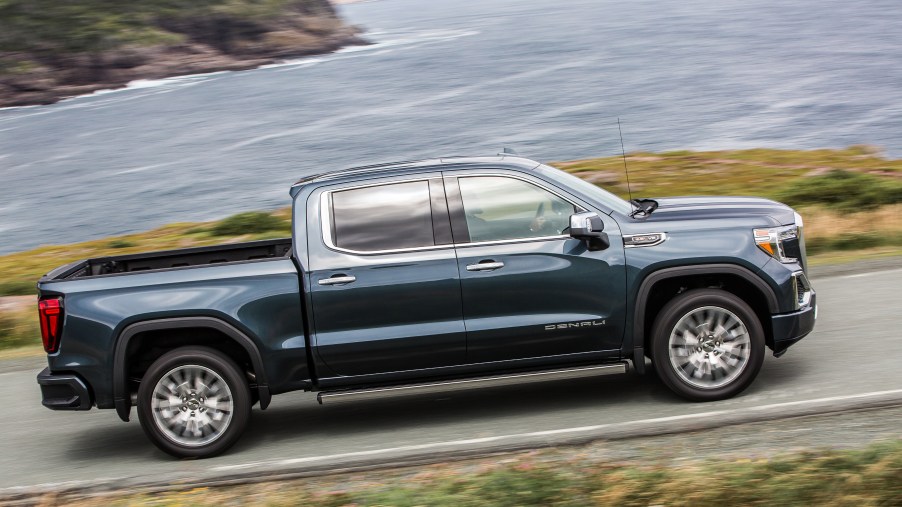
The Big Difference Between Sierra and Silverado
The big difference between the GMC Sierra and Chevy Silverado trucks are their diesel engine fuel economy numbers. Diesel versions of the 2020 GMC Sierra and 2020 Chevy Silverado have an identical drivetrain, so you would expect identical fuel economy numbers. If you do, you would be wrong. In a weird occurrence that has to do with options, the Silverado does better by a few miles-per-gallon in EPA testing.
Both the Sierra and Silverado use the same GM T1 platform and use the identical 3.0-liter Duramax straight-six-cylinder engine, the LM2 turbo-diesel engine so there is no difference there. Both crank out 277 hp and 460 lb-ft of torque.
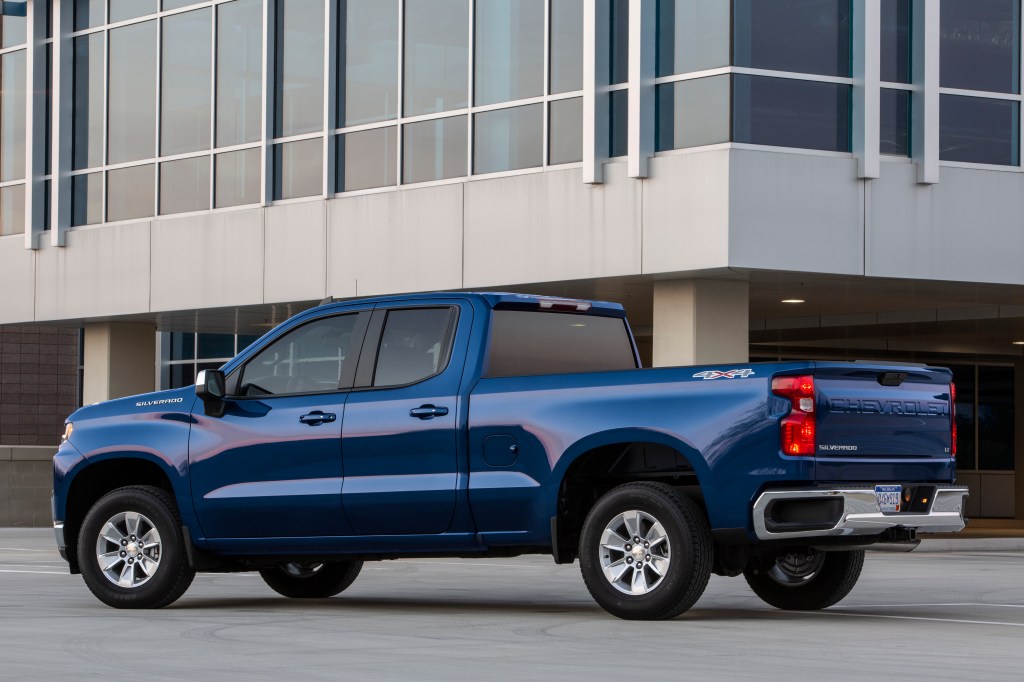
Both trucks are equipped with the same transmission, the GM 10L80 10-speed automatic. No difference there, either.
Identical Chassis, Engine, Transmission, Body
So, let’s review. Identical chassis, engine, transmission, and body. Yet, in spite of that, the Silverado gets three miles-per-gallon more than the Sierra. In 2WD mode, the Sierra gets 30 mpg for the highway and 23 mpg in the city. Combined that’s 26 mpg.
The Sierra gets 27 mpg on the highway and 23 mpg in city driving. So, city figures are the same but the average due to the lower highway miles is 25 mpg combined.
Reason 1: Weight
One of the reasons is poundage. Weight. In general GMC trucks are optioned better because they’re supposed to be slightly more of a premium truck than the Chevy counterpart. So content added to the Sierras adds weight, which makes the engines work harder, thus less miles-per-gallon.
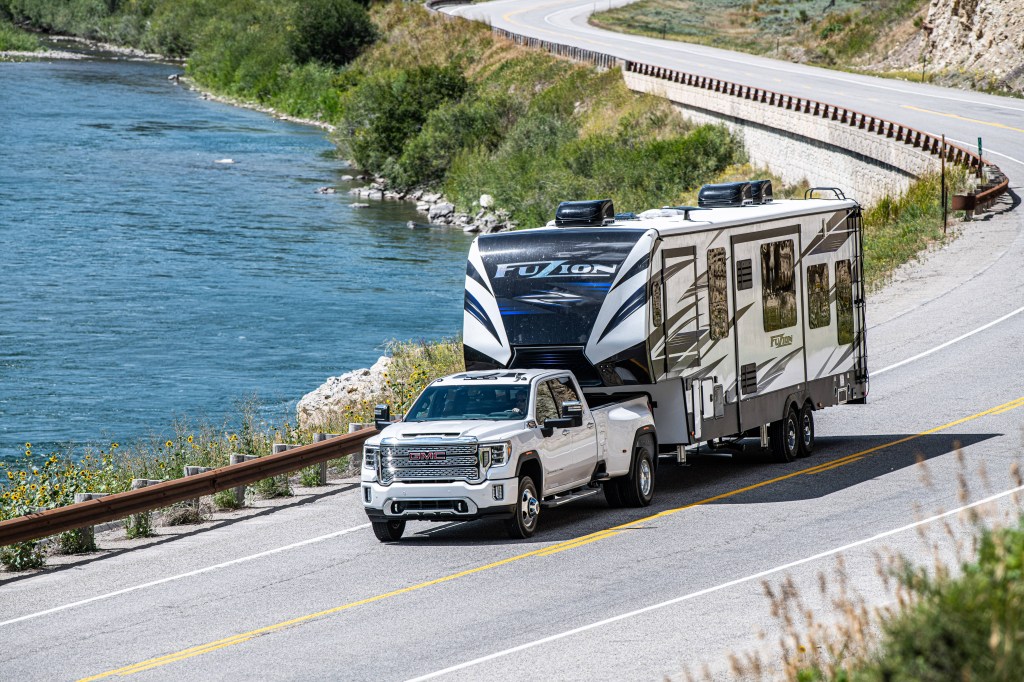
Reason 2: Tires
The other reason is due to the tires. The higher volume models of all Sierras sold use all-terrain tires, whereas Chevy’s high-volume models are shod with all-season tires.
Reason 3: Aerodynamics
There also might be a slight difference in aerodynamics as the GMC has a slightly different front end styling than the Silverado. That could mean a change in aerodynamics, which allows the vehicle to cut through the atmosphere better or not so well.
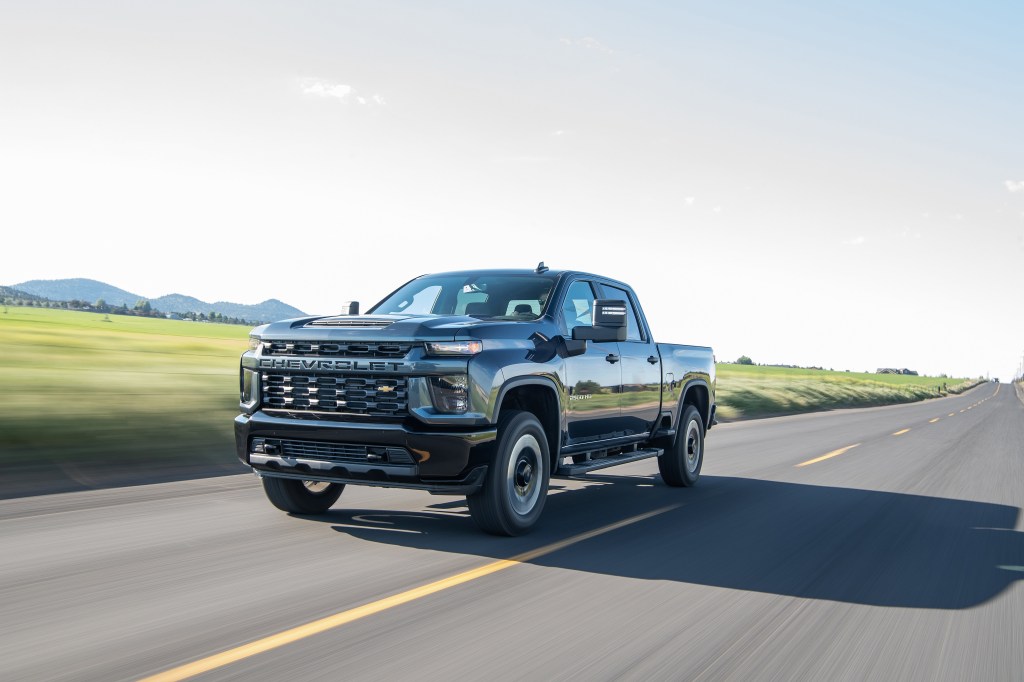
GM is quick to point out that either the Sierra or Silverado compare favorably with the competition’s trucks when it comes to gas economy.
So, this always raises the question, “Why is there even a GMC and Chevy truck?” The reasons are varied and interesting.
With Little Difference, Why Have Sierra and Silverado?
First, each state has its own dealer franchise laws, but basically it is very hard for the manufacturer to unwind from a franchise/licensing agreement. GM fought lawsuits with Oldsmobile dealers when it stopped producing that brand for years. It may still be fighting lawsuits over it.
Also, the brand has a lot of equity with consumers as the “better” truck. Because of that, it commands a premium over Chevy trucks, so GM makes a bit more margin on GMC trucks. And if there is one thing that truck buyers are it’s loyal.
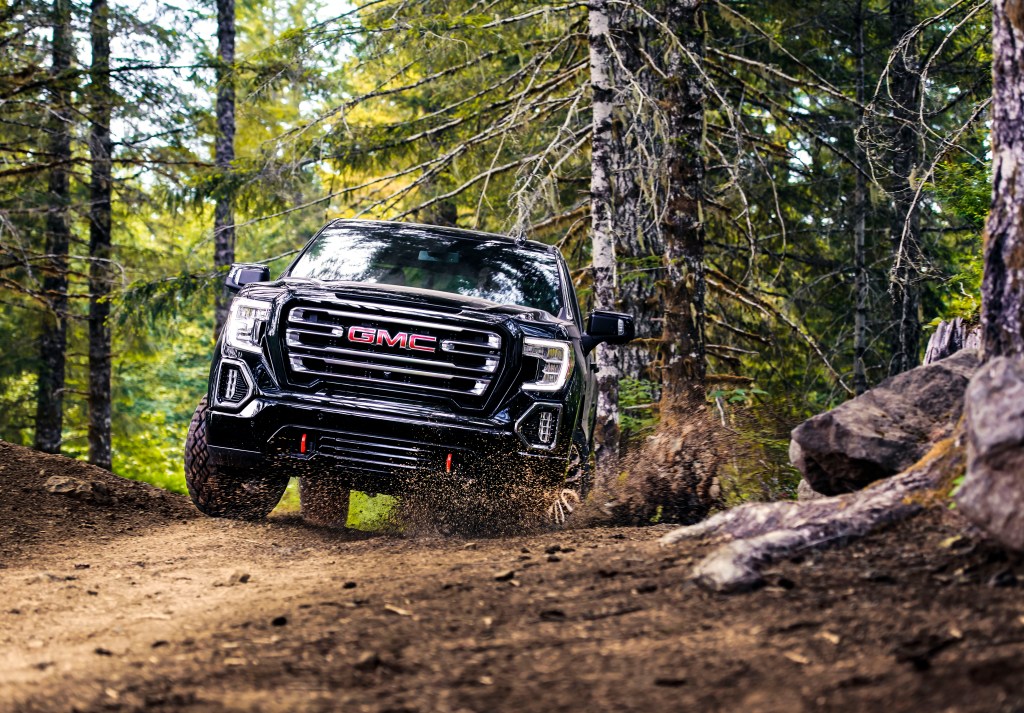
Finally, internally GMC caters to commercial interests and is set up better for fleet sales. It is also better set up to handle heavy-duty variants. Chevy has a whole lot of cars, SUVs, and Corvettes to put effort into selling, along with trucks. GMC? It’s all about trucks.
The Most Important Reason
One other reason is that when it was going through bankruptcy the government wanted GMC folded along with the other divisions that GM gave up in 2012. The accountants at GM were able to change the government’s desire to see GMC gone for one reason, and that was profit.
In spite of whatever it takes to develop and market the separate brand, GMC makes a ton of dough for General Motors, and that’s the reason they survived the bankruptcy. If there’s a bottom-line reason for something to exist, it will until such time as it proves to be less or unprofitable.



